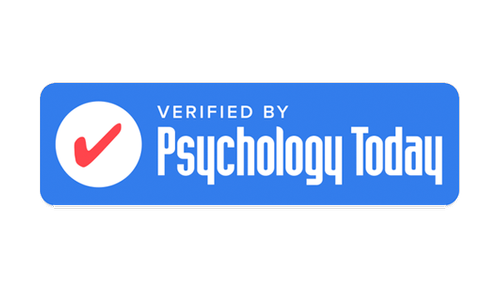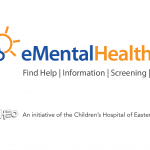Finding Your Compass: How Spiritual Therapy Helps Professionals Thrive Without Burning Out
Spiritual Therapy and Mental Health: A Practical Guide for Professional Helpers
Burnout is a lived reality for nurses, doctors, therapists, chaplains, educators, and many other professional helpers. People enter their careers with a sense of calling, but somewhere along the way the weight of responsibility, constant crisis, and system failures erode the very meaning that once fueled them. Can you relate? Did you once understand your work as a calling – but now you want out? Right. Common.
For me, my therapeutic approach addresses the mind, emotions and the deeper layer of spirituality within. I want my clients to explore their inner compass to remember who they are and why they’re here. Spiritual therapy does exactly that. It brings together evidence-based practice and soul care to help professionals recover, rebuild, and renew with intention.

What is Spiritual Therapy?
Spiritual therapy is not about imposing religion or prescribing a particular belief system. Instead, it integrates traditional therapeutic approaches such as narrative therapy, mindfulness, and cognitive tools with a focus on meaning, values, and transcendence.
For many, spirituality is about connection: to themselves, to others, and to something greater. In therapy, this becomes a source of resilience and identity reconstruction after burnout or moral injury.
Why Professionals Seek Spiritual Guidance
Professional helpers often find themselves caught in moral injury and ethical dilemmas.
- A nurse might struggle with watching patients receive inadequate care due to staff shortages.
- A chaplain might wrestle with systemic injustices.
- A therapist may feel drained by the endless stream of trauma they hear daily.
In each of these cases, traditional therapy addresses coping, but spiritual therapy adds another layer: grounding in core values, restoring dignity, and connecting to purpose.
Story: A Nurse at the Crossroad
One nurse I worked with during the height of the COVID-19 pandemic was at a breaking point. They loved their patients but felt crushed by the system. They considered leaving the profession altogether.
Through spiritual therapy, we explored what was life-giving and what was depleting. They realized they didn’t need to abandon nursing but needed to shift into a setting that aligned with their values. Moving from hospital work to in-home caregiving renewed their sense of vocation. Therapy didn’t erase the system’s challenges, but it gave them a compass to chart a healthier path forward. The nurse needed space to talk and get in touch with what was true for her, deep down. The process empowered her to make the decisions she knew would restore her energy and joy again.

How Sessions Work
Spiritual therapy sessions are client-centered and flexible. Some clients bring in prayer, meditation, or sacred texts. Others focus on values clarification, narrative re-authoring, or mindfulness exercises. You get to be your full self – the most “you” you can be.
The point is not to prescribe spirituality, but to let it become a framework for recovery and renewal. Sessions are conducted online across Ontario, making them accessible to professionals wherever they live and work.
Integration with Evidence-Based Practice
This is a joining of therapy and spirituality in an intentional way. Evidence-based practices such as CBT and ACT help with skills, thought patterns, and behaviour change. Spiritual approaches address identity, meaning, and coherence. Together, they create a holistic process that helps people recover function and soul.
Who Offers Spiritual Guidance?
Spiritually integrated therapy is provided by clinicians who are both psychotherapists and trained in spiritual care. This dual expertise means that clients can trust they are receiving ethical, professional therapy, while also having space to explore the questions of identity, vocation, and meaning that typical therapy may not always address.
The Benefits of Spiritual Therapy
- Restores a sense of meaning and coherence after burnout
- Helps process moral injury and ethical distress
- Strengthens resilience through values alignment
- Creates space for grief, lament, and honest struggle
- Supports decisions about vocation, career shifts, or identity renewal

Why This Approach Matters Now
The pandemic exposed the cracks in caregiving professions. Helpers continue to leave their fields, feeling broken and unsupported. The cost is personal, professional, and systemic.
Spiritual therapy is not a quick fix, but it provides a path to sustainable recovery. It allows professionals to integrate their whole selves into healing and do the work of moving forward with clarity.

If you are wrestling with MAiD, and would like to explore spiritual therapy support, read more here.
If you are part of the Christian faith tradition and are looking for a therapist who can integrate faith. Read more here and here
What is spiritual therapy and how is it different from religious counselling?
Spiritual therapy explores meaning, values, identity, and hope. It can include faith when it is important to you, but it does not require religion. The focus is your lived experience and what helps you recover and grow.
How does spirituality support mental health in evidence-based therapy?
I integrate tools like CBT, ACT, narrative therapy, mindfulness, and nervous system education with values and meaning work. The result is coping skills plus clearer purpose and congruence.
Is spiritual therapy only for people who are religious or Christian?
No. It is available to anyone. I do offer Christian counselling for those who want it, and I also support clients from other traditions and those who do not identify with a faith.
Who benefits from this approach?
Professional helpers such as nurses, physicians, first responders, therapists, chaplains, and educators who are navigating burnout, moral injury, compassion fatigue, or a values conflict at work.
What happens in a typical session?
We clarify what matters to you, map what is life-giving and draining, and build skills for coping and decision-making. Sessions may include values exercises, narrative re-authoring, mindfulness, and practical planning.
Is this covered by insurance in Ontario?
Yes, many extended health plans reimburse psychotherapy with a Registered Psychotherapist. I provide receipts for insurance submission.
Do you offer online sessions in Kitchener, Toronto, and the GTA?
Yes. I see clients online across Ontario, including Kitchener, Toronto, and the GTA.
How do I get started?
Book a free 20-minute consult. We will discuss goals, fit, and next steps.
















